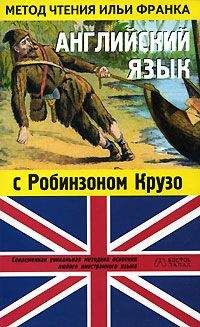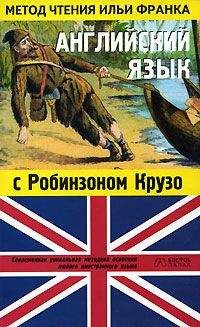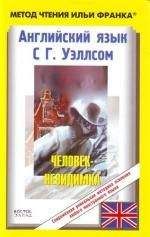“It’s little dealing Black Michael has with (Черный Михаэль имеет небольшое отношение к; little – мало, немного; to deal with – иметь дело; иметь отношение, касаться) – ” began the girl, braving her mother’s anger (начала девушка, храбро встречая гнев матери; brave – храбрый, смелый); but as she spoke a heavy step sounded on the floor (но когда она заговорила, раздались тяжелые шаги: «тяжелый шаг зазвучал по полу»; sound – звук, шум), and a gruff voice asked in a threatening tone (и грубый голос спросил угрожающе: «в угрожающем тоне»):
“Who talks of ‘Black Michael’ in his Highness’s own burgh (кто говорит о «Черном Михаэле» в собственном городе его высочества)?”
The girl gave a little shriek (девушка тихо вскрикнула: «издала небольшой крик»), half of fright – half, I think, of amusement (наполовину от испуга, наполовину, я думаю, от изумления; amusement – развлечение, забава; /приятное/ изумление, удивление).
“You’ll not tell of me, Johann (ты не расскажешь обо мне, Иоганн)?” she said.
“See where your chatter leads (видишь, к чему: «куда» приводит твоя болтовня),” said the old lady.
The man who had spoken came forward (человек, который /перед этим/ говорил = произнесший те слова, вышел вперед).
“Upon my word,” said I, “I begin to be sorry for your duke. But if a man will be a younger son, why he must take what the elder leaves, and be as thankful to God as he can;” and, thinking of myself, I shrugged my shoulders and laughed. And then I thought also of Antoinette de Mauban and her journey to Strelsau.
“It’s little dealing Black Michael has with – ” began the girl, braving her mother’s anger; but as she spoke a heavy step sounded on the floor, and a gruff voice asked in a threatening tone:
“Who talks of ‘Black Michael’ in his Highness’s own burgh?”
The girl gave a little shriek, half of fright – half, I think, of amusement.
“You’ll not tell of me, Johann?” she said.
“See where your chatter leads,” said the old lady.
The man who had spoken came forward.
“We have company, Johann,” said my hostess (у нас гости, Иоганн, – сказала моя хозяйка; company – общество, компания; гости), and the fellow plucked off his cap (и парень стянул свою фуражку; to pluck – срывать, собирать; тянуть, тащить). A moment later he saw me (мгновением позже он увидел меня; to see), and, to my amazement, he started back a step (и, к моему удивлению, на шаг отступил назад; to start – начинать; сдвигаться /с места/), as though he had seen something wonderful (будто увидел что-то удивительное).
“What ails you, Johann?” asked the elder girl (что с вами, Иоганн? – спросила старшая девушка; to ail – чувствовать недомогание, хворать; беспокоить, мучить). “This is a gentleman on his travels, come to see the coronation (этот джентльмен путешествует и прибыл посмотреть на коронацию; to be on travel – путешествовать).”
The man had recovered himself (человек пришел в себя; to recover – обретать снова; приходить в себя), but he was staring at me with an intense, searching, almost fierce glance (но уставился на меня пристальным, изучающим, почти свирепым взглядом; intense – сильный; напряженный; searching – тщательный /об исследовании/; изучающий, проницательный).
“Good evening to you (добрый вечер вам),” said I.
“Good evening, sir,” he muttered, still scrutinizing me (добрый вечер, сэр, – пробормотал он, все еще внимательно меня разглядывая), and the merry girl began to laugh as she called (и веселая девушка со смехом крикнула: «начала смеяться, когда она крикнула»; to call – звать, окликать; кричать, закричать) —
“See, Johann, it is the colour you love (смотри, Иоганн, это же цвет, который ты любишь)! He started to see your hair, sir (он испугался, увидев ваши волосы, сэр; to start – начинать; вздрагивать, пугаться). It’s not the colour we see most of here in Zenda (это не /тот/ цвет, который мы часто видим здесь в Зенде; most – больше всего).”
“I crave your pardon, sir,” stammered the fellow, with puzzled eyes (я прошу вашего прощения = прошу простить меня, сэр, – заикаясь и глядя с недоумением: «с озадаченным взглядом» произнес парень; to crave – страстно желать; просить, умолять). “I expected to see no one (я не ожидал здесь кого-нибудь встретить; to see – видеть; встречать).”
“We have company, Johann,” said my hostess, and the fellow plucked off his cap. A moment later he saw me, and, to my amazement, he started back a step, as though he had seen something wonderful.
“What ails you, Johann?” asked the elder girl. “This is a gentleman on his travels, come to see the coronation.”
The man had recovered himself, but he was staring at me with an intense, searching, almost fierce glance.
“Good evening to you,” said I.
“Good evening, sir,” he muttered, still scrutinizing me, and the merry girl began to laugh as she called —
“See, Johann, it is the colour you love! He started to see your hair, sir. It’s not the colour we see most of here in Zenda.”
“I crave your pardon, sir,” stammered the fellow, with puzzled eyes. “I expected to see no one.”
“Give him a glass to drink my health in (дайте = налейте ему стаканчик выпить за мое здоровье); and I’ll bid you good night, and thanks to you, ladies (а я хочу пожелать вам доброй ночи и поблагодарить вас, дамы; to bid – предлагать цену; обращаться с пожеланием /доброго утра, доброго дня и т. п./), for your courtesy and pleasant conversation (за вашу любезность и за приятную беседу).”
So speaking, I rose to my feet (произнеся эти слова: «говоря так», я встал: «поднялся на ноги»; to rise), and with a slight bow turned to the door (и с легким поклоном направился к двери; to turn – поворачивать/ся/; направляться). The young girl ran to light me on the way (младшая девушка выбежала, чтобы посветить мне по дороге; to light – зажигать/ся/; освещать), and the man fell back to let me pass, his eyes still fixed on me (а мужчина отступил назад, чтобы дать мне пройти, по-прежнему не отрывая от меня глаз; to fall back – отступать; уступать /дорогу/; to fall – падать; to fix one’s eyes on – не сводить глаз, пялиться; to fix – укреплять, устанавливать; останавливать взгляд). The moment I was by (в тот момент, когда я поравнялся с ним; by /нареч./ – близко, возле, рядом), he started a step forward, asking (он сделал шаг вперед и спросил; to start forward – броситься вперед; step – шаг):
“Pray, sir, do you know our King (простите, сэр, вы не знаете нашего короля; to pray – молиться; просить /в обращении; часто как вводное слово/)?”
“I never saw him,” said I (я его никогда не видел, – ответил я). “I hope to do so on Wednesday (надеюсь сделать это в среду).”
He said no more, but I felt (больше я ничего не сказал, но чувствовал) his eyes following me till the door closed behind me (что его взгляд следовал за мной = что он не отводил от меня взгляда, пока за мною не закрылась дверь). My saucy conductor, looking over her shoulder at me (моя бойкая провожатая, оглянувшись на меня через плечо; saucy – дерзкий, нахальный; оживленный, бойкий; conductor – проводник, гид; to conduct – вести, сопровождать; to look – смотреть, глядеть) as she preceded me upstairs, said (когда шла впереди вверх по лестнице, сказала; to precede – предшествовать; находиться/идти впереди):
“There’s no pleasing Master Johann for one of your colour, sir (мастеру Иоганну не угодил цвет ваших волос, сэр; to please – желать, хотеть; угождать; for one – что касается).”
“Give him a glass to drink my health in; and I’ll bid you good night, and thanks to you, ladies, for your courtesy and pleasant conversation.”
So speaking, I rose to my feet, and with a slight bow turned to the door. The young girl ran to light me on the way, and the man fell back to let me pass, his eyes still fixed on me. The moment I was by, he started a step forward, asking:
“Pray, sir, do you know our King?”
“I never saw him,” said I. “I hope to do so on Wednesday.”
He said no more, but I felt his eyes following me till the door closed behind me. My saucy conductor, looking over her shoulder at me as she preceded me upstairs, said:
“There’s no pleasing Master Johann for one of your colour, sir.”
“He prefers yours, maybe?” I suggested (может, он предпочитает ваш /цвет/? – предположил я).
“I meant, sir, in a man (я имела в виду, сэр, у мужчины; to mean – намереваться; подразумевать, иметь в виду),” she answered, with a coquettish glance (ответила она, /бросив/ игривый взгляд; coquettish – кокетливый).
“What,” asked I, taking hold of the other side of the candlestick (какое, – спросил я, берясь за другую сторону подсвечника; to take hold – брать, хватать;), “does colour matter in a man (значение имеет цвет /волос/ у мужчины)?”
“Nay, but I love yours – it’s the Elphberg red (никакого, но мне нравится ваш, это – рыжий цвет Эльфбергов; nay – отрицательный ответ).”
“Colour in a man,” said I, “is a matter of no more moment than that (цвет /волос/ у мужчины, – сказал я, – дело не столь важное, как /вот/ это; matter – вещество; дело, вопрос; moment – момент, миг; важность, значение)!” – and I gave her something of no value (и я кое-что сделал, а что – не важно: «и я дал ей что-то не имеющее ценности»; of no value – не имеющий ценности).
“God send the kitchen door be shut (слава Богу, что дверь на кухню закрыта; to send – посылать; приводить в какое-л. состояние или действие)!” said she.
“Amen!” said I, and left her (аминь! – сказал я и оставил ее).
In fact, however, as I now know (однако на самом деле, как я теперь знаю), colour is sometimes of considerable moment to a man (цвет иногда бывает очень важным для мужчины; considerable – значительный, важный, существенный).
“He prefers yours, maybe?” I suggested.
“I meant, sir, in a man,” she answered, with a coquettish glance.
“What,” asked I, taking hold of the other side of the candlestick, “does colour matter in a man?”
“Nay, but I love yours – it’s the Elphberg red.”
“Colour in a man,” said I, “is a matter of no more moment than that!” – and I gave her something of no value.
“God send the kitchen door be shut!” said she.
“Amen!” said I, and left her.
In fact, however, as I now know, colour is sometimes of considerable moment to a man.
Chapter 3
A Merry Evening with a Distant Relative
(Веселый вечер с дальним родственником)
I was not so unreasonable as to be prejudiced against the duke’s keeper (я не был столь неразумен, чтобы иметь предубеждение против лесничего герцога; to prejudice – предубеждать; создавать предвзятое мнение) because he disliked my complexion (из-за того, что ему не понравился цвет моих волос; complexion – цвет лица /иногда также волос и глаз/); and if I had been, his most civil and obliging conduct (а если бы и был, то его в высшей степени вежливое и любезное поведение) (as it seemed to me to be (каким оно, как мне показалось, было)) next morning would have disarmed me (на следующее утро обезоружило бы меня). Hearing that I was bound for Strelsau (услышав, что я еду в Стрелсо; to be bound for – направляться, следовать /куда-л./; to bind – вязать, связывать), he came to see me while I was breakfasting (он пришел навестить меня, в то время, когда я завтракал; to see – видеть; повидаться, навестить), and told me that a sister of his (и сообщил мне, что его сестра; to tell – рассказывать; говорить, сообщать) who had married a well-to-do tradesman and lived in the capital (которая замужем за богатым купцом и живет в столице), had invited him to occupy a room in her house (пригласила его занять /отдельную/ комнату в ее доме). He had gladly accepted, but now found (он с радостью согласился, но теперь полагает; to find – находить, отыскивать; убеждаться, приходить к выводу) that his duties would not permit of his absence (что его обязанности не позволят ему отлучиться; absence – отсутствие, отлучка). He begged therefore that (поэтому он просит, чтобы), if such humble (though, as he added, clean and comfortable) lodgings would satisfy me (если такое скромное (хотя, добавил он, чистое и уютное) жилище подойдет мне; to satisfy – удовлетворять), I would take his place (я занял эту комнату вместо него: «занял его место»). He pledged his sister’s acquiescence (он уверял, что сестра согласится; to pledge – отдавать в залог; давать обещание, заверять; acquiescence – уступка, согласие), and urged the inconvenience and crowding (и твердил о неудобствах и толкотне; to urge – понуждать, подгонять; убеждать, настаивать) to which I should be subject in my journeys to and from Strelsau the next day (которым я буду подвергаться /во время/ поездки в Стрелсо и назад; subject – подчиненный, зависимый; подверженный /чему-л./). I accepted his offer without a moment’s hesitation (я принял его предложение, ни минуты не колеблясь), and he went off to telegraph to his sister (и он ушел, чтобы послать сестре телеграмму: «телеграфировать своей сестре»), while I packed up and prepared to take the next train (тогда как я уложил вещи и приготовился сесть на ближайший поезд; next – следующий; ближайший).





